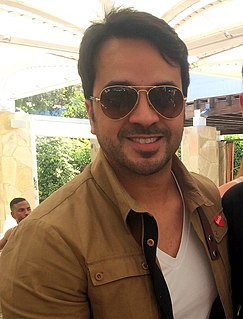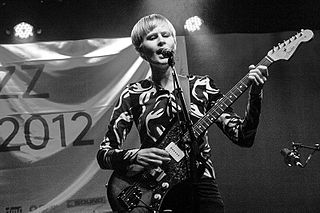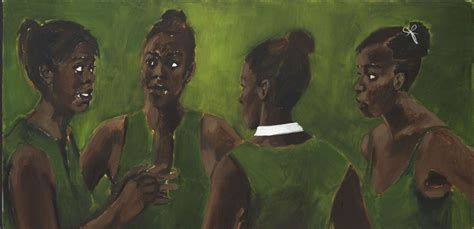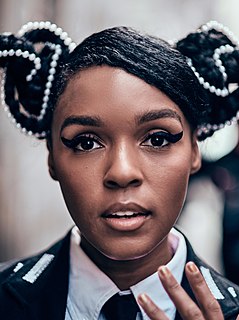A Quote by Martin Scorsese
I wish I could play music. I think I get as closeas possible with the editing of the films. Over the years musichas been an even more important influence than-or as important as-film.There's no doubt about it. Painting, movement, dance, sculpture-it'sall in cinema.
Related Quotes
Does art have a future? Performance genres like opera, theater, music and dance are thriving all over the world, but the visual arts have been in slow decline for nearly 40 years. No major figure of profound influence has emerged in painting or sculpture since the waning of Pop Art and the birth of Minimalism in the early 1970s.
All three parts of filmmaking [writing, shooting, editing] contribute to rhytm. You want the script to be a tight as possible, you want the acting to be as efficient as possible on the set, and you have enough coverage to manipulate the rhythm in the editing room, and then in the editing room you want to find the quickest possible version, even if it's a leisurely paced film. I definitely in filmmaking more and more find writing and directing a means to harvest material for editing. It's all about editing.
Cinema is a kind of pan-art. It can use, incorporate, engulf virtually any other art: the novel, poetry, theater, painting, sculpture, dance, music, architecture. Unlike opera, which is a (virtually) frozen art form, the cinema is and has been a fruitfully conservative medium of ideas and styles of emotions.
It's crazy because I was 10 years old when 'Macarena' was all over the place, and I remember looking at it from a different point of view. I remember culturally how important that song was, even though people didn't really know what they were saying. It was more about the dance and the movement of it and the cultural side of it.
Painting from life was incredibly important for me because it allowed me to train my eyes to see everything that is there. But I realized early on that painting from life wasn't something that I was all that invested in. I was always more interested in the painting than I was the people. For me, removing that as a compulsion offered me a lot more freedom to actually paint and think about color, form, movement, and light.
The ordinary man is living a very abnormal life, because his values are upside down. Money is more important than meditation; logic is more important than love; mind is more important than heart; power over others is more important than power over one's own being. Mundane things are more important than finding some treasures which death cannot destroy.
For me, architecture is an art the same as painting is an art or sculpture is an art. Yet, architecture moves a step beyond painting and sculpture because it is more than using materials. Architecture responds to functional outputs and environmental factors. Yet, fundamentally, it is important for me to stress the art in architecture to bring harmony.
More than my other films, Uncle Boonmee is very much about cinema, that's also why it's personal. If you care to look, each reel of the film has a different style - acting style, lighting style, or cinematic references - but most of them reflect movies. I think that when you make a film about recollection and death, you have to consider that cinema is also dying - at least this kind of old cinema that nobody makes anymore.
There are some groups that for years and years have not gotten the rights that the majority of human beings have, and I think that it's important to continue to draw these parallels so that when we think about our future we can change some of the lives of people who love differently than we do, look different than we do, who come from a different class. It's all about bringing awareness to how important it is to be accepting of people...and there will be oppression if one group thinks they're more important or superior.
I don't have a very high opinion, actually, of the world of criticism - or the practice of criticism. I think I admire art criticism, criticism of painting and sculpture, far more than I do that of say films and books, literary or film criticism. But I don't much like the practice. I think there are an awful lot of bad people in it.







































